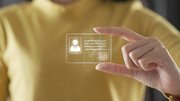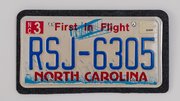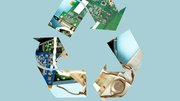News
Kiosks behind bars
November 2, 2005
In most cases, kiosks need to "take money to make money" - that is, in addition to credit and debit card payment methods, the machines should be able to accept cash.
But accepting cash introduces a whole new realm of variables related to security.
 This story and all the great free content on KioskMarketplace is supported by: Build superior kiosks with bill and coin acceptors from MEI  |
"Although theft may be a break-in by an outside person, it is often an inside job performed by those permitted access to the system. If the money automatically goes into a secure, enclosed, lockable (cassette), this kind of theft is deterred. Retailers should make sure that their systems contain a cash acceptor with this security feature."
For Dave Barclay, security is an enormous concern. His company, TW Vending, places vending machines inside prisons. In order to minimize the flow of cash, his machines are equipped with card readers, and inmates are issued stored-value cards.
TW developed a system that automates the process by which funds are added to the cards. Utilizing MEI's Cashflow series of bill acceptors, TW's Money-In Machine lets visitors insert cash, which is automatically added to the inmate's account.
"The self-serve kiosk allows visitors to deposit funds into an inmate trust account by selecting the inmate, inserting currency and receiving a receipt," Barclay said. "The funds are in the account immediately."
Must-have qualities
A prison is indeed a special environment for a kiosk, but it highlights the fact that real security can be achieved anywhere if the program is built securely from the ground up.
"Kiosks by their very nature are designed to be stand-alone, and hence the temptation for the unscrupulous to try and defraud the machine is increased," said Osborne. "So the kiosk has to be prepared for the unexpected, prepared to defend itself - and the vendor's profits - from attacks."
According to Osborne, the bill acceptor is the kiosk's first line of defense against cash-based fraud; therefore, it is wise for the operator to get the best possible quality.
"For effective protection, the bill acceptor needs to employ mechanisms that are constantly updateable to stay one step ahead of even the most determined and sophisticated fraudsters, backed up by software developed in conjunction with the world's banks."
So if fraud is such a big concern, why not eliminate cash entirely and only accept payment by plastic? Osborne points to a study from the Banking Automation Bulletin that shows that 75 percent of all retail transactions under $20 are made with cash.
"For kiosks to be successful, they need to generate a return on investment by maximizing their volume of transactions," Osborne said. "To do this, they need to embrace all customers."
----
MEI and the PCS NetCash Machine
MEI invites you to read its case study "Kiosk for Prepaid Cafeteria Meals."
Get this case study at
www.kioskmarketplace.com/mei1
----
This article appeared in theRetail Kiosk & Self-Service Executive Summary, Fall 2005.
 ChatGPT
ChatGPT Grok
Grok Perplexity
Perplexity Claude
Claude











